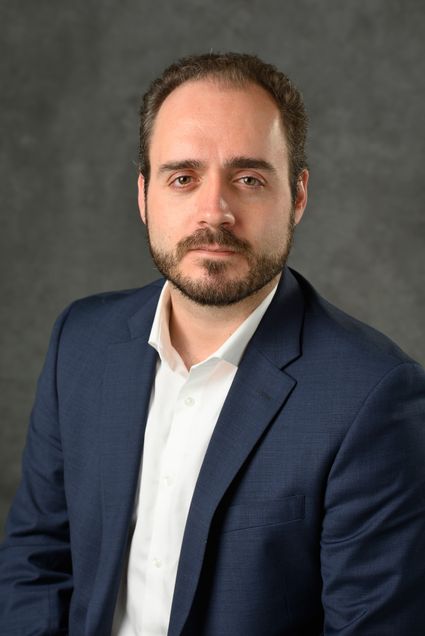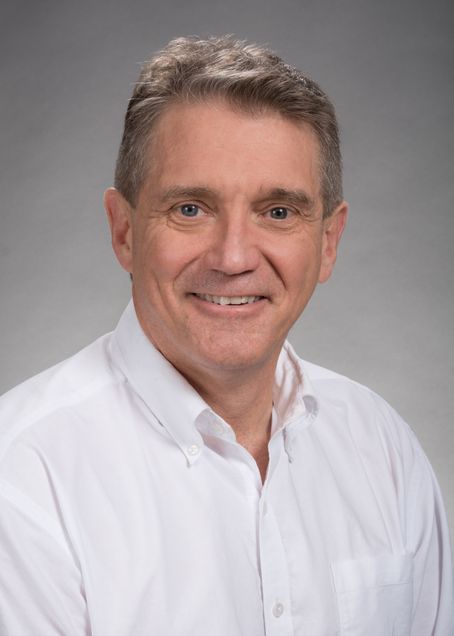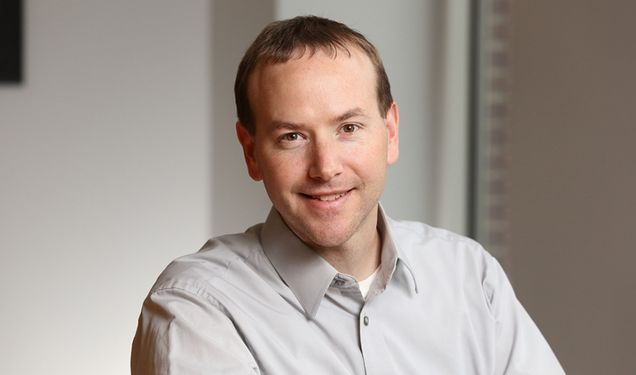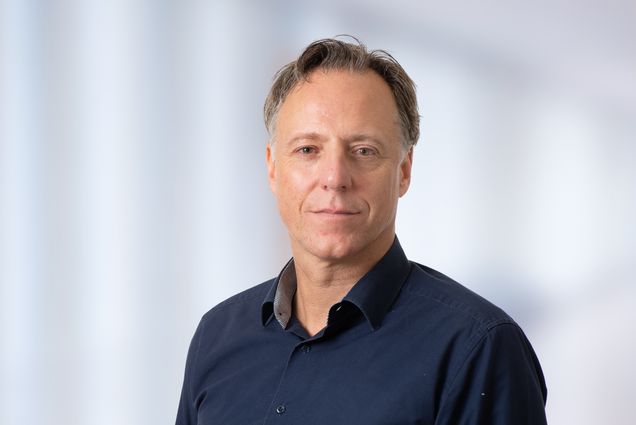Materials Day 2023
Materials Day 2023, Cardiac Bioengineering: Approaches to Advance Study and Treatment of Cardiac Diseases, will focus on engineering approaches to advance the study and treatment of cardiac disease. Leaders in the will share their insights on opportunities and challenges from their research.

Friday, October 27, 2023
8:15am – 5:30pm
Accessibility
Boston University strives to be accessible, inclusive and diverse in our facilities, programming and academic offerings. Your experience in this event is important to us. If you have a disability (including but not limited to learning or attention, mental health, concussion, vision, mobility, hearing, physical or other health related), require communication access services for the deaf or hard of hearing, or believe that you require a reasonable accommodation for another reason please contact Anya Blount (blounta@bu.edu), to discuss your needs. Please request accommodations by September 24th.
Agenda
30 minute presentations, plus 5 minutes for questions
8:15 Welcome- Dean Elise Morgan and Event Chair, Chris Chen
Session 1- Engineering Cardiac Tissues
8:30 Nenad Bursac, Duke University 9:05 Aitor Aguirre, Michigan State University 9:40 Brendon Baker, University of Michigan – Ann Arbor
10:15-10:30 Break
Session 2- Heart Materials
10:30 Kevin Kit Parker, Harvard University 11:05 Jennifer Lewis, Harvard University 11:40 Ellen Roche, Massachusetts Institute of Technology
12:15-1:45 Lunch, East End Lounge + Poster Session, 7th Floor Atrium
Session 3- Translational Challenges
1:45 Charles E. Murry, University of Washington 2:20 Kricket Seidman, Harvard University 2:55 Wolfram Zimmerman, Göttingen University Medical Center
3:30-3:45 Break
Session 4- Measurement Technologies
3:45 Jeffrey Saucerman, University of Virginia 4:20 Beth L. Pruitt, University of California, Santa Barbara 4:55 Emma Lejeune, Boston University
5:30 Wine & Cheese + Poster Session, 7th Floor Atrium
Event Chair
Chris Chen, Boston University, Division of Materials Science & Engineering, Department of Biomedical Engineering
Speakers
Aitor Aguirre, Michigan State University
Associate Professor of Biomedical Engineering
Michigan State University

Lecture Title: Reverse engineering human heart development with pluripotent stem cells
Lecture Abstract: Recent advances in stem cell technologies and organoid biology are enabling us to create more accurate in vitro models of human organs. Here we will discuss novel methods to generate developmentally relevant human heart organoids by self-organization using human pluripotent stem cells and discuss more recent developments. Organoids develop sophisticated internal chambers with well-organized multi-lineage cardiac cell types, recapitulate heart field formation, atrioventricular specification, vasculature development and anterio-posterior heart patterning. We will also discuss disease modeling and novel technologies for organoid assays.
Speaker Bio: Dr. Aguirre joined Michigan State University as Associate Professor of Biomedical Engineering in 2018. He previously worked at the University of California in San Diego as an Assistant Professor of Medicine. Dr. Aguirre obtained his Ph.D. in Tissue Engineering at the Institute for Bioengineering of Catalonia in Spain, and performed his postdoctoral training at the Salk Institute and UCSD working on stem cells for cardiac regeneration. His most significant contributions include insights into the mechanisms of human heart regeneration, heart development, and disease modeling using human stem cell-based bioengineered heart models, such as organoids.
Brendon Baker, University of Michigan - Ann Arbor
University of Michigan

Lecture Title: Microenvironmental mechanics govern engineered myocardial tissue organization, contractility, and costamere formation
Lecture Abstract: The mechanical function of the myocardium arises from an intricate confluence of cardiomyocyte (CMs) function and biomechanics of the extracellular matrix (ECM). Understanding this interplay remains an important unmet challenge due to limitations in existing approaches for engineering myocardial tissue. In this talk, I’ll describe our recent work establishing a platform for creating arrays of cardiac microtissues with highly tunable mechanical properties by integrating ECM-mimetic synthetic, fiber matrices and iPSC-CMs, which provides real-time tissue contractility readouts and in-depth structural assessment. We find that matrix stiffness, matrix alignment, and tissue boundary constraints distinctly affect iPSC-CM contractile function and structural development. Of note, matrix mechanics influences the formation of costameres which reflect a mature adhesive state of cardiomyocytes, highlighting how mechanically tunable can inform the design of regenerative therapies to treat cardiac disease.
Speaker Bio: Brendon Baker is an associate professor of Biomedical Engineering at the University of Michigan. He received a BS in Biomedical Engineering from Columbia and a PhD in Bioengineering from the University of Pennsylvania. He leads a research group focused on understanding how the cellular microenvironment regulates fundamental biological processes including migration, proliferation, differentiation, and extracellular matrix synthesis. His group develops novel biomaterials and in vitro microsystems to study the mechanobiology mediating interactions between cells and their surroundings. His prior work has led to insights into disease processes as well as means to control cell-material interactions towards organ replacement and regenerative therapies.
Nenad Bursac, Duke University
Duke University

Lecture Title: OvERKoming Proliferation Barriers in Engineered and Native Myocardium
Lecture Abstract: Induction of cardiomyocyte (CM) proliferation is an attractive strategy for functional heart regeneration. We explored if activation of ERK signaling pathway can induce CM proliferation in post-mitotic engineered cardiac tissues (ECTs). Expression of constitutively active BRAF-V600E mutant (caBRAF) in ECTs induced broad transcriptomic changes, long-term ERK activation, robust CM cycling and tissue growth, sarcomere disassembly, contractile deficit, and shift to glycolytic metabolism. In vivo, AAV-mediated expression of caBRAF induced CM hypertrophy and contractile or electrophysiological dysfunction dependent on animal age. These studies demonstrate use of ECTs for studies of mitogenic stimuli in the context of cardiac development and regeneration.
Speaker Bio: Dr. Nenad Bursac is a Professor of Biomedical Engineering, Cell Biology, and Medicine at Duke University. During his PhD and postdoctoral work at MIT and JHU, he developed first mammalian engineered heart tissue models to study cardiac electrophysiology. Currently, Dr. Bursac’s lab studies striated muscle pathophysiology in 3D cell culture systems and develops novel cell- and gene-based therapies for cardiac and skeletal muscle regeneration. Dr. Bursac has authored over 130 publications and mentored over 70 trainees. He is a recipient of the Stansell Family Distinguished Research Award, a fellow of AIMBE and BMES, and an Associate Editor of Science Advances.
Emma Lejeune, Boston University
Assistant Professor of Mechanical Engineering
Boston University

Lecture Title: Building Open Science Tools for Quantifying Mechanical Behavior in Engineered Cardiac Tissue
Lecture Abstract: In this talk, we will describe our preliminary and ongoing work in developing open science tools for quantifying the mechanical behavior of engineered cardiac tissue. In brief, we envision a methodological framework with three essential components: (1) open access datasets of time-lapse movies of cells and tissue, (2) open source software to extract interpretable quantities of interest from these time-lapse movies, and (3) combined mechanistic and statistical models of biological behavior informed by these data. We are presently working on creating these datasets, software, and models in partnership with experimental collaborators, and releasing them to the community under permissive licenses. Looking forward, we anticipate that these large open access curated datasets combined with open source tools to extract information from them will enable significant advances in our ability to understand and treat cardiac disease.
Speaker Bio: Emma Lejeune is an Assistant Professor in the Mechanical Engineering Department at Boston University. She received her PhD from Stanford University in September 2018, and was a Peter O’Donnell, Jr. postdoctoral fellow at the University of Texas at Austin Oden Institute until 2020 when she joined the faculty at BU. At BU, Emma has received the David R. Dalton Career Development Professorship, a Computational Science and Engineering Junior Faculty Fellowship, the ASME Haythornthwaite Research Initiation Grant, and the AHA Career Development Award. Current areas of research involve integrating data-driven and physics based computational models, and understanding the mechanical behavior of heterogeneous materials.
Jennifer Lewis, Harvard University
Harvard University

Lecture Title: Biomanufacturing cardiac tissues from stem cell-derived organ building blocks
Lecture Abstract: My talk will focus on engineering cardiac tissues via bioprinting of organ building blocks derived from human induced pluripotent stem cells (hiPSCs). To recapitulate the structural complexity and native function of the human myocardium, we first generate cardiac building blocks from hiPSCs. These building blocks are then consolidated to form either a cellularly dense bioink or tissue matrix, which can either be directly printed or vascularized via sacrificial writing, respectively. The resulting printed tissues are initially composed of asynchronously beating cardiac building blocks, which ultimately fuse together to form bulk tissues that exhibit synchronous contractility. Our scalable assembly methods open new avenues for creating functional cardiac tissues for drug discovery and therapeutic use.
Speaker Bio: Jennifer A. Lewis is the Jianming Yu Professor of Arts and Sciences, the Wyss Professor for Biologically Inspired Engineering in the Paulson School of Engineering and Applied Sciences and a core faculty member of the Wyss Institute at Harvard University. Her research focuses on creating biomanufacturing vascularized human tissues for drug discovery, disease modeling, and therapeutic use. Lewis is an elected member of the National Academy of Sciences and the National Academy of Engineering. Multiple companies are commercializing technology from her lab ranging from drug delivery to engineered kidney tissues.
Charles E. Murry, University of Washington
University of Washington

Lecture Title: Genome Editing Stem Cells for Electromechanical Repair of the Heart
Lecture Abstract: Stem cell-based heart regeneration has immense promise but has proven difficult to achieve. My lecture will describe two advances: eliminating arrhythmias accompanying cardiomyocyte transplantation, and devising a cell therapy for chronic heart failure. We used genome editing to identify the culprit ion channels that carry the arrhythmic currents post engraftment (spoiler alert: pacemaking channels), creating non-arrhythmic grafts that remain excitable. To repair the chronically failing heart, we engineered cardiomyocytes with elevated levels of the myosin activator, 2’-deoxy-ATP. These hypercontractile grafts supply dATP throughout the host myocardium via the gap junction network, enhancing whole-heart contractility and reversing heart failure progression. Applications to human heart regeneration will be discussed.
Speaker Bio: Chuck Murry received his MD and PhD from Duke University, followed by residency training in Pathology and clinical/research fellowships at the University of Washington. He co-founded and currently directs the UW Institute for Stem Cell and Regenerative Medicine. Murry’s research focuses on cardiovascular stem cell biology, with a long-term goal/obsession of regenerating the human heart. Apparently finding research, teaching, clinical service, and academic leadership insufficiently punishing, Murry’s quest also has led to the founding of 3 biotechnology companies. To the surprise of many, he remains stably married to his bride of 37 years and has raised 2 reasonably well-adjusted daughters.
Kevin Kit Parker, Harvard University
Harvard University

Lecture Title: Rethinking the Heart: Implications for Cardiac Tissue Engineering
Lecture Abstract: We posit that deeply embedded within the heart’s canon are errors or flawed assumptions that have misguided efforts to develop therapies for heart disease. In a variation of comparative zoology, however, we have studied marine lifeforms that pump to swim as a means of understanding the fundamental laws of muscular pumps. We study their anatomy and swimming biomechanics, and then attempt to replicate these functions in tissue engineered models of the lifeforms using cardiac myocytes and design schemes borrowed from the form and function of the heart. I will show some of our findings and how they are informing our efforts to build the heart and heart parts.
Speaker Bio: Kit Parker is the Tarr Family Professor of Bioengineering and Applied Physics in the School of Engineering and Applied Sciences at Harvard University. Parker is the director of the SEAS Disease Biophysics Group whose research focuses on pediatric diseases with an emphasis on the development of regenerative therapeutics. He is the co-director of the Center for Accelerating Therapeutic Development and a Senior Scientist in Cardiology at Boston Children’s Hospital. He is a member of the Harvard Stem Cell Institute and a founding faculty member of the Wyss Institute for Biologically-Inspired Engineering. He is a core faculty member of the Harvard Stem Cell Institute. He received his B.S. from Boston University in Biomedical Engineering, his M.S. in Mechanical Engineering and Ph.D. in Applied Physics from Vanderbilt University. He was a postdoctoral fellow in Pathology at Children’s Hospital in Boston and in Biomedical Engineering at the Johns Hopkins School of Medicine. He served on the Defense Science Research Council, an advisory activity to the Defense Advanced Research Projects Agency (DARPA) for nearly a decade and has also served on the Defense Science Board Task Force on Autonomy and the Army Science Board. He has served stints in industry, including Vertex Pharmaceuticals (2015-2017), Biogen (2017-2019), and Novartis (2020). Parker is Colonel in the United States Army Reserves and holds a joint faculty appointment as Professor of Applied Mathematics at the United States Military Academy at West Point. He co-led an ad hoc consortium that included the US Army, 3D printing companies, universities, and hospitals in developing emergency diagnostic materials for the COVID-19 pandemic in 2020. He served multiple combat tours in Afghanistan as well as stateside mobilizations in support of Special Operations Command and the White House National Security Staff. He is a certified Kansas City Barbecue Society BBQ judge, a graduate of the University of Guelph Ice Cream course, and the founder of two companies in the food space, Desora and Tender Foods.
Beth L. Pruitt, University of California, Santa Barbara
University of California, Santa Barbara

Lecture Title: Mechanobiology of human induced pluripotent stem cell derived cardiomyocytes
Lecture Abstract: Using single cell mechanobiology studies, we examine how disease-linked mutations propagate to change the contractile dynamics and cellular morphology of human induced pluripotent stem cell derived cardiomyocytes (hiPSC-CMs). We micropattern islands of adhesive protein to constraining the spreading and alignment of hiPSC-CM on hydrogel substrates containing fluorescent microbeads as fiducial markers for traction force microscopy (TFM). We vary substrate stiffnesses from physiological to diseased/fibrotic, apply mechanical stretch, and apply inotropes and myotropes to vary contractile output. We assessed multiple mutations edited into the WTC line along with isogenic controls under stressors. Some cell lines carried an endogenously labeled alpha-actinin GFP reporter for enabling visualization of sarcomere structure and dynamics with force output. These studies suggest changes in contractile force generation drive remodeling of structure and function at a cell-intrinsic level via changes in mechanosignaling.
Speaker Bio: Dr. Beth Pruitt is a Professor at the University of California Santa Barbara since 2018, and Founding Chair of their new Bioengineering Department. She was a professor at Stanford University from 2003-2018 in Mechanical Engineering and Bioengineering. She served as an officer in the US Navy at the engineering headquarters of the Navy nuclear programs, and then as an instructor teaching Systems Engineering (and offshore sailing in the summer) at the U.S. Naval Academy. Dr. Pruitt earned her Ph.D. in Mechanical Engineering at Stanford University where she was supported as a Hertz Foundation Fellow. She was a postdoctoral researcher at the Swiss Federal Institute of Technology Lausanne (EPFL), and in 2012, she returned to Switzerland as a visiting professor in the Lab for Applied Mechanobiology in the Department of Health Sciences and Technology at ETH, Zurich. She has been recognized by the NSF CAREER Award, DARPA Young Faculty Award, Denice Denton Leadership Award and is a Fellow of ASME, AIMBE, and BMES.
Ellen Roche, Massachusetts Institute of Technology
Massachusetts Institute of Technology

Lecture Title: Using robotics to augment and model cardiac function
Lecture Abstract: My research blends principles of pathophysiology, biomechanics and mechanical engineering with state-of-the-art materials and robotics. In this talk I will speak about three interrelated research streams (i) augmenting the remaining native function in failing organs and biological systems to restore functionality, (ii) introducing technologies to replace or repair focal deficits in tissues and deliver therapy and (iii) developing physiologically realistic in vitro, in vivo, ex vivo and in silico approaches suitable for testing cardiac or pulmonary technologies. I will review my group’s overarching approach to designing these technologies, and how these endeavors have opened up possibilities for further understanding of the biomechanics associated with their targeted organ systems.
Speaker Bio: Ellen is the Latham Family Career Development Professor at the Department of Mechanical Engineering and the Institute for Medical Engineering and Science at MIT. She directs the Therapeutic Technology Design and Development Lab. Her research focuses on applying innovative technologies to the development of cardiac devices to repair or augment cardiac function using disruptive approaches. She has explored the intersection of mechanical and biological assist devices and therapy delivery and made pioneering contributions in biomechanics, medical device design, soft robotics and materials, and bioengineering design and modeling. Ellen’s contributions to the medical field have impacted its progression in three significant areas; augmentation of failing organs to restore functional output, development of technologies to repair tissues and correct local defects, and high-fidelity ex vivo tests to evaluate new technologies. Ellen is the recipient of multiple awards including the Wellcome Trust Seed Award in Science, a National Science Foundation CAREER Award, an NIH Trailblazer Award, a Hood Award for Excellence in Child Health Research, the Harold. E. Edgerton Faculty Achievement Award, the LabCentral Ignite Golden Ticket and the inaugural Future Founders Grand Prize.
Jeffrey Saucerman, University of Virginia
University of Virginia

Lecture Title: When Not to Let Your Heart Decide: Some Lessons from Re-Engineering of Molecular Networks
Lecture Abstract: Your heart is faced with a wide range of biochemical and mechanical stresses that affect whether its cells decide to contract, grow, proliferate, or die. These decisions of the heart are mediated by molecular networks that evolved to adapt to physiologic stresses yet counter-intuitively exacerbate cardiac disease. Current drugs primarily target cell surface receptors, because we lack the knowledge of how to control complex signaling networks. In this talk, I will describe our efforts to bioengineer cardiomyocyte signaling networks through iterative design of computational models, drug screens, and mechanistic experiments.
Speaker Bio: Dr. Jeff Saucerman is a Professor of Biomedical Engineering and Professor of Cardiovascular Medicine at the University of Virginia. He leads a research group in cardiac systems biology, focused on identifying and controlling the molecular networks involved in heart failure. He received a B.S. in Engineering Science from Pennsylvania State University, Ph.D. with Andrew McCulloch at the University of California San Diego, a postdoc with Don Bers at Loyola University Chicago. Dr. Saucerman has received an NSF CAREER Award, Fellow of the American Heart Association, Fellow of the American Institute of Medical and Biological Engineering.
Kricket Seidman, Harvard University
Harvard University

Lecture Title: TBD
Lecture Abstract: TBD
Speaker Bio: Christine Seidman is the Thomas W. Smith Professor of Medicine and Genetics at Harvard Medical School, an Investigator of the Howard Hughes Medical Institute, and Director of the Cardiovascular Genetics Service at Brigham and Women’s Hospital. She was an undergraduate at Harvard College and received a M.D. from George Washington University School of Medicine. Dr. Seidman served as an intern and resident in Internal Medicine at John Hopkins Hospital and received subspecialty training in cardiology at the Massachusetts General Hospital. Dr. Seidman has pioneered the discovery of the genetic basis for heart muscle disorders, including hypertrophic and dilated cardiomyopathies and congenital heart disease. By engineering human mutations into iPSC-derived cardiomyocytes and mouse models she has identified molecular mechanisms and therapeutic targets. Her work has enabled development of clinical gene-based diagnostics, early and accurate identification of at-risk individuals, and pre-emptive interventions to limit the progression and devastating outcomes associated with these disorders. Dr. Seidman is the recipient of the American Heart Association Basic Science Prize and Joseph A. Vita Award, the American Society for Clinical Investigation Award, the Pasarow Foundation Award in Cardiovascular Research, the Bristol-Myers Squibb
Award for Distinguished Achievement in Cardiovascular Research, the Institut de France Fondation Lefoulon-Delalande Grand Prix for Science Award and the European Society of Cardiology Gold Medal. She is a member of U.S. National Academy of Medicine and
the National Academy of Science.
Wolfram Zimmerman, Göttingen University Medical Center
Harvard University

Lecture Title: Tissue Engineered Heart Repair from Bench to Bedside
Lecture Abstract: Innovations in human pluripotent stem cell (PSC) technologies and lessons learned from developmental biology enable us today to engineer human myocardium with organotypic structure and function. The cellular pillars for Engineered Heart Muscle (EHM) construction are PSC-derived cardiomyocytes and stromal cells. By their entrapment in collagen type 1, self-organization into force-generating EHM with properties of matured myocardium can be facilitated. Preclinical studies in non-human primates confirmed the safe and efficacious application of EHM allografts. The first-in-patient/first-in-class Biological Ventricular Assist Tissue in terminal Heart Failure (BioVAT-HF) trial (NCT04396899) is presently investigating whether the failing human heart can be remuscularized.
Speaker Bio: Wolfram-Hubertus Zimmermann is Professor and Director of the Institute of Pharmacology and Toxicology at the University Medical Center Göttingen. His research interests include: (1) development and translation of stem cell-based tissue engineered therapeutics; (2) therapeutic genome editing; (3) human organoids/engineered tissue for disease modelling and drug discovery. Major organs/tissue of interest include heart muscle, skeletal muscle, nervous system, and connective tissue. Track record: >200 publications, >15 patents/patent applications, founding of several spin-offs (e.g., Repairon, myriamed, MyriaMeat).